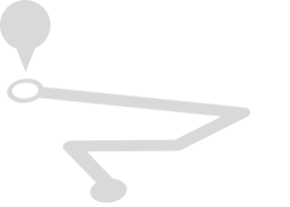
How it works
GPS satellites circle the earth twice a day in a very precise orbit and transmit signal information to earth. GPS receivers take this information and use triangulation to calculate the user’s exact location. Essentially, the GPS receiver compares the time a signal was transmitted by a satellite with the time it was received. The time difference tells the GPS receiver how far away the satellite is. Now, with distance measurements from a few more satellites, the receiver can determine the user’s position and display it on the unit’s electronic map. A GPS receiver ·must be locked on to the signal of at least three satellites to calculate a 2D position (latitude and longitude) and track movement. With four or more satellites in view, the receiver can determine the user’s 3D position (latitude, longitude and altitude). Once the user’s position .has been determined, the GPS unit can calculate other information, such as speed, bearing: track, trip distance, distance to destination, sunrise and sunset time and more.
Who uses GPS?
Recreational uses of GPS are almost as varied as the number of recreational sports available. GPS is popular among bushwalkers, mountain bikers, and cross-country skiers, just to name a few. Anyone who needs to keep track of where he or she is, to find his or her way to a specified location, or know what direction and how fast he or she is going can utilise the benefits of the global positioning system.
Why have a GPS?
On its own a GPS is not ideal, as is a compass or a map on its own. There are benefits and disadvantages to all. Most of us are familiar with map and compass work and we might ask why have a GPS. Simply it is to increase the accuracy of your information. The information contained on a compass is available to you on a GPS, as are the features mentioned above and then some. So ideally from a leadership point of view a map in a map case with a basic compass and a good GPS should get you through just about every situation. The synergy of the 3.used together is greater than the sum of the individual parts.